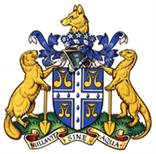Open to
Liverymen / Freemen/ Associates / Guests
Presented by Dr Gemma Harvey, Reader in Physical Geography, Queen Mary University of London
About this Webinar
Animals and plants can have a profound influence on Earth surface processes and landforms across multiple scales, with important implications for environmental resilience, restoration and hazards. Such ‘ecosystem engineer’ species can generate potential for working with natural processes to restore degraded environments. For example, reintroducing missing ecosystem engineers can enhance and accelerate environmental restoration, potentially reducing the need for direct intervention and hence costs. While water resource management is increasingly emphasising the importance of working with natural ecosystem processes to deliver multiple environmental, social and economic benefits, prevailing approaches (e.g. Natural Flood Management) have tended to focus on strategic placement of measures in the landscape, rather than whole-system restoration. Rewilding is a radical new conservation approach that is rapidly gaining momentum globally and has been advocated as a vital tool in reversing biodiversity decline. Rewilding involves restoring wildness to anthropogenically altered landscapes, including the reintroduction of missing species. It is driving dramatic biodiversity gains, but many of the wider ecosystem service benefits and their economic importance remains unquantified.
This webinar introduces key concepts associated with rewilding, illustrates some of the types of landscape change and ecosystem engineering effects that rewilding facilitates, and explores the relevance of this new approach for the water cycle and water resource management.
About the Speaker
Dr Gemma Harvey is a Reader in Physical Geography at Queen Mary University of London. Her research addresses key questions in biogeomorphology to inform sustainable environmental management, including understanding system responses to disturbance (e.g. invasive non-native species) and to environmental restoration and rewilding. Gemma leads research quantifying the roles of plants and animals as ‘ecosystem engineers’ driving earth surface processes and exploring how these organisms can contribute to landscape restoration and delivery of ecosystem services. Her research is interdisciplinary, involving collaborations with geomorphologists, ecologists, hydraulic modellers and environmental engineers.
She conducts collaborative research with key organisations in the water and environment sector including Environment Agency, National Trust, Natural England, the River Restoration Centre and Rewilding Britain. Current projects are exploring the potential for biodiversity changes delivered by landscape rewilding to modify hydrological processes and help mitigate floods and low flow stresses. She is working with the pioneering Knepp Estate rewilding project in West Sussex to quantify vegetation regeneration and is leading a UKRI-funded project on ‘Biodiversity and the water cycle: can rewilding mitigate the impacts of hydrological extremes?’
Gemma is Director of Education for postgraduate taught programmes at QMUL Geography and has led the MSc Water and Environmental Management programme since 2012, supporting environmental scientists into careers in the water and environment sector. She has been Associate Editor for the Water and Life domain of Wiley journal WIREs Water since the journal was founded in 2014.
Next events
-
15 Apr 2025
Election Court Lunch
-
23 Apr 2025
Leadership Lessons from the Ice



